Conservation
Conservation
Conservation
Our ponies love to be brushed on their tummy’s and backs, and have their mane and tails brushed. It’s very relaxing for the ponies and for whoever is brushing them too and can be quite therapeutic. It is lots of fun and they love the attention. There are lots of different brushes too. Some are soft for the smaller ponies and others are bigger for the larger ponies. They also have mane and tail conditioner so you can make their mane and tails look pretty.
Below: Toby enjoys a groom from some of his friends
Have you ever heard of a flash mob? Those great adverts that are on television where everyone starts dancing and singing in different places such as a train station, An airport , in shopping centres or places where members of the public would be pleasantly surprised.
So inpsired by many of them, Yebo want to create one to help bring awareness and fundraising to our organisation and what we are trying to acheive.
Many ideas have been put together but all of yours are also welcome. We would love you to comment below with your thoughts and ideas. We would like to know where you think this should take place, how this will be publicized and what sort of songs should be used in it. you can either leave a comment below or email us.
We are looking for beat-boxers, actors, singers and musicians. Can you help?
Inspired by the following link which shows the advert from Terminal 5 at Heathrow airport, we would love you to take a look and be inspired too. Get in touch with us if you would like to help. We would love to hear from you.
info@yeboyes.org

Yebo are currently in the process of supporting children and wildlife in Uganda in 2013 and 2014. After running our previous volunteer projects in 2010 and 2011,we are looking at the best way in which we can support children in the coming years by working closely with the organisations out in Uganda including UWEC, (The Ugandan Wildlife Education Centre) and those that are supporting street children.
We will be looking for volunteers to help out in Africa in the near future to work together with a local team of people out there at present. We will keep you updated on this soon or you can contact us directly at info@yeboyes.org
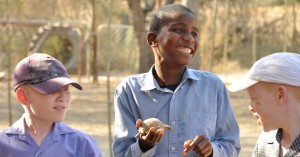
As many of our supporters and volunteers may know, as well as Yebo’s work in Africa, we are beginning to look at our work in the UK.
Several projects took place at various children’s hospices where we held ‘primate days’ for the siblings of children with life limited conditions. Our current projects are looking at introducing children with disadvantages to animals using ponies in particular. We own 4 ponies, 2 of which were rescued recently and will be great children’s ponies.
Our ponies have great personalities and we are looking at days where children from various supportive organisations can come and interact with them, grooming and brushing them, giving them pats and cuddles, helping with their feeds or even just experiencing the home of where the ponies live. Children would always be offered different experiences, and it is up to them to join in with whatever they felt comfortable with. Children are offered the opportunity to ride the ponies with experienced equestrian handlers and riders.
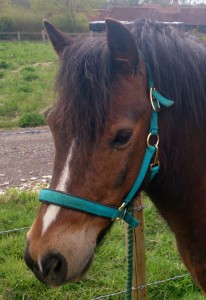
Meet our ponies
Toby is 11 years old, small and gentle, and has been around children all his life. He is a very handsome pony who loves attention from anyone.
Rolo is a Dartmoor pony and is a little bigger than Toby, he is cheeky and gentle and loves to be groomed and scratched.
Jessie and Treacle are 2 Shetland ponies who have been rescued. They have just joined us and we are currently gaining a good friendship with them. They already love attention from their handlers!
If you would like more information on these projects please contact lisa.davies@yeboyes.org or find us on Facebook170942383704
Key Learning Drawn from the Street Kids Visit
The program had a pre and post visit evaluation. Pre included observations made in their first trip and post was at the return trip at the facility.
Beneficiaries
The first trip comprised of 35 children and the second had 42 children including two facilitators that escorted the group.
Activities
The children engaged in different activities which included; community work, a guided tour around the zoo (UWEC), life skills 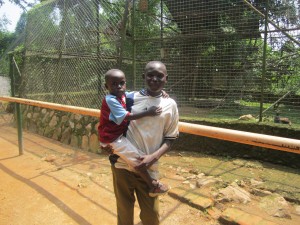 exposure, music dance and drama, lunch and refreshments. In undertaking these activities, chimpanzees were used as ambassadors to speak for other animals that have had similar circumstances in their lives.
exposure, music dance and drama, lunch and refreshments. In undertaking these activities, chimpanzees were used as ambassadors to speak for other animals that have had similar circumstances in their lives.
Key Learning
From the observation and interactions with the street children, the following key learning’s were drawn;
The children willingly undertook community work and through this they learnt how to be responsible and live in a clean environment. They were asked if they had any problem with tiding up where they live or it’s something that they did not like to do in their everyday life.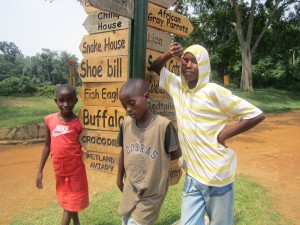
Their responses indicated that it was very important in avoiding disease spread that would affect them since they have no money and have to be healthy so as to get energy for every day.
It’s therefore important to note that street children can play a role in cleaning up the towns or areas they live if mobilized.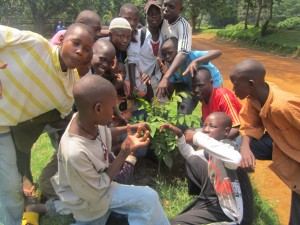
They also learnt how be co-operative and work together as a group and with different people in the communities they live in, unlike their first visit in which they did not do any community work. It was observed that the children were much relaxed on the second visit and paid more attention to the facilitators.
This led us to the conclusion that a one off visit may not easily influence behavior and action among the street children. This is on ground that the children were very skeptical on the first visit, but slowly learnt to trust their facilitators.
Through another guided tour the children learnt more about animals and this time they were more inquisitive in learning about anything that they were being taught which was not in the same case during their first visit, where they did not feel confident to ask questions or want to know more about the animals that they saw and liked. They expressed their key learning on animals through pictures, stories, and questions
During the second visit, the children asked more questions like,
What is the relation ship between chimpanzees and humans?
At what age do snakes give birth?
Why do tortoises survive for a long time?
Do you always take back these animals to the wild?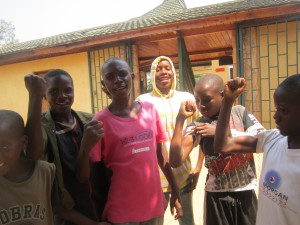
This is evident that they had developed a passion for animals and they no longer just have a concern about their own plight, but the environment that surrounds them, unlike in the first visit.
When asked to tell tales about animals, this time they had more stories to tell with out any hesitation for example how people came from chimpanzees, why the eagle eats the hens’ chicks, how the hare tricked the leopard, why the giraffe developed a long neck among others, and also were able to derive meanings and lessons from these stories of which they later related to their daily lives and learnt from them, unlike in their first visit where they told stories but could not derive any meaning out of them.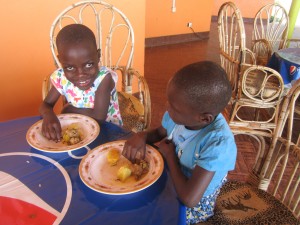
The children mentioned some actions they would undertake to protect animals and their habitat. They mentioned; feeding, not killing, taking time to learn about animals and planting trees.
They were also concerned about the wild animals that are eaten by the carnivorous animals and humans as well and asked Uganda wildlife education Center to encourage people become vegetarians.
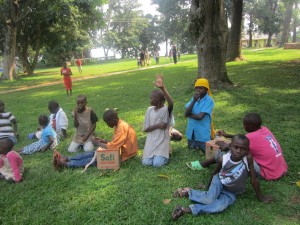 They also named polythene and plastic as an environmental problem and advocated for picking all polythene bags and plastics that are littered. They demonstrated this through a community service activity at UWEC where they collected all polythene. They suggested reusing the polythene to; light their stoves back at home, unlike in the first visit where they discarded the sweets and biscuit wrappers after eating.
They also named polythene and plastic as an environmental problem and advocated for picking all polythene bags and plastics that are littered. They demonstrated this through a community service activity at UWEC where they collected all polythene. They suggested reusing the polythene to; light their stoves back at home, unlike in the first visit where they discarded the sweets and biscuit wrappers after eating.
Keeping food, constructing huts. This was contrary to the first visit where poor waste disposal was evident.
When asked to draw animals they liked and why they liked them this was done on this particular visit where they used their skills and creativity more, unlike in the first visit most of them did not want to draw and others did not know how to draw the animals they liked and tell why they liked them, they simply drew images which did not portray the real animals they had seen.
Conclusion
Sustained programs with street kids can lead to behavior change and action among street kids if properly managed.
You can help support these programs which we aim to run each month. 2 days a month costs Yebo £400. If you would like to donate even 50p we would be so so grateful for your kind support.
Our account details are below
LLoyds Tsb
Account name: Yebo
Account number: 00802607
Sort code: 30-93-74
Overseas payments
BIC: LOYDGB21022
IBAN: GB87 LOYD 3093 7400 8026 07